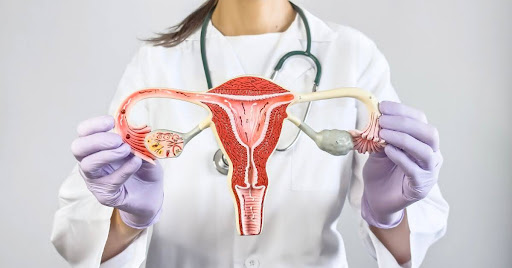Understanding Gynecologists: Roles, Types, and When to See One
4 min read
By DocGenie , Published on - 20 December 2024
Women’s health involves a wide spectrum of changes and needs over the years—from puberty and menstruation to pregnancy, menopause, and beyond. Throughout all these stages, one medical expert remains central to a woman’s health journey—a gynecologist.
If you’re looking for a gynecologist in Delhi or wondering when exactly to consult one, this blog will provide everything you need to know. Whether it’s your first visit or a follow-up, understanding what gynecologists do and when to see them can help you take control of your health with confidence.
Who Is a Gynecologist and What Do They Do?
 A gynecologist is a medical doctor specializing in women’s reproductive health. They deal with a wide range of issues, including menstruation, contraception, fertility, pregnancy, childbirth, hormonal imbalances, infections, and menopause.
A gynecologist is a medical doctor specializing in women’s reproductive health. They deal with a wide range of issues, including menstruation, contraception, fertility, pregnancy, childbirth, hormonal imbalances, infections, and menopause.Gynecologists also conduct routine screenings to detect and prevent serious conditions such as cervical cancer, ovarian cysts, or uterine fibroids. Many women consult gynecologists not just for health problems, but for guidance on lifestyle and wellness related to hormonal health, menstruation, and fertility planning.
Here are some common services provided by a gynecologist:
- Routine pelvic exams and Pap smears
- Diagnosis and treatment of menstrual disorders
- Birth control advice and family planning
- Fertility counseling and testing
- Prenatal and postnatal care
- Diagnosis and treatment of sexually transmitted infections (STIs)
- Menopause management
- Surgery for reproductive health concerns, like hysterectomy or cyst removal
What Are the Different Types of Gynecologists?
When people search for the best gynecologist in Delhi, they may come across professionals with overlapping titles. While all gynecologists handle female reproductive health, some specialize further depending on the nature of care required.Here are the main types of gynecologists you might encounter:
- General Gynecologists: Handle most reproductive and sexual health issues, including irregular periods, infections, and birth control.
- Obstetrician-Gynecologists (OB-GYNs): These are specialists trained in both obstetrics and gynecology. They manage pregnancy, labor, and postnatal care along with regular gynecological concerns.
- Reproductive Endocrinologists: Focus on hormonal disorders and fertility treatments such as IVF.
- Gynecologic Oncologists: Treat cancers of the female reproductive system like cervical, ovarian, and uterine cancers.
- Urogynecologists: Specialize in urinary and pelvic floor disorders, including incontinence and prolapse.
Choosing the right type of gynecologist depends on your specific concern. For instance, if you're planning a pregnancy, an OB-GYN is the most suitable expert. If you're facing fertility issues, a reproductive endocrinologist may be ideal.

When Should You See a Gynecologist?
Many women hesitate to visit a gynecologist until a problem becomes serious. However, early consultation can often prevent complications and improve quality of life. Here are some scenarios when you should definitely book an appointment:- Irregular or painful periods
- Heavy menstrual bleeding
- Severe cramps or pelvic pain
- Unusual vaginal discharge or odor
- Itching, burning, or other signs of infection
- Missed periods without pregnancy
- Menstrual issues after 40
- Unexplained weight gain or hair growth
- Pain during intercourse
- Issues related to contraception
- Planning for pregnancy or fertility issues
- Pregnancy confirmation and prenatal care
- Menopause symptoms such as hot flashes or mood swings
In fact, most experts recommend that girls begin visiting a gynecologist between the ages of 13–15, or when they begin menstruating. These early visits are often just informational, helping young girls understand their bodies and menstrual cycles.
What to Expect During a Visit to a Gynecologist?
A gynecological visit often involves questions about your medical history, menstrual cycle, sexual activity, and general health. The doctor may perform a physical examination and recommend lab tests or imaging if necessary.Typical components of a gynecological check-up may include:
- General health evaluation (BP, weight, etc.)
- Breast examination
- Pelvic exam (if age-appropriate)
- Pap smear for cervical cancer screening
- Urine or blood tests if required
For young women or first-time visitors, the consultation may focus more on education and clearing doubts rather than any physical examination.
If you are consulting a gynecologist in Delhi, especially in major cities or clinics, many offer specialized services such as digital reports, online consultations, or lab-at-home sample collection, making it easier to prioritize women’s health.
How to Choose the Best Gynecologist in Delhi
Choosing a gynecologist is a personal decision, and comfort is key. You should feel free to ask questions and share health concerns without hesitation.
Here are a few tips to help you find the best gynecologist in Delhi:
- Check qualifications and experience, especially if you need specialized care
- Read patient reviews and testimonials
- Look for hospitals or clinics with good infrastructure and hygiene
- Consider the availability of female doctors, if you prefer one
- Ensure the doctor is approachable and explains medical terms clearly
- Check if the clinic offers convenient appointment slots and follow-ups
Several reputed platforms and clinics in Delhi allow you to book a gynecologist online and consult either in-person or via teleconsultation, based on your preference.
Conclusion
A gynecologist plays a pivotal role in every woman’s life, whether it's for routine wellness, fertility planning, or menopause support. Ignoring symptoms or delaying a visit can lead to complications that are harder to treat later.
If you’re searching for a trusted gynecologist in Delhi, it’s important to choose one who not only holds the right expertise but also makes you feel heard and supported. Don’t wait for an emergency—proactive care is the best way to protect your health long-term.
Taking the time to visit a gynecologist and prioritizing reproductive health is an act of self-care. Whether you're looking for routine guidance or managing a specific condition, timely consultation with the best gynecologist in Delhi can make all the difference.



